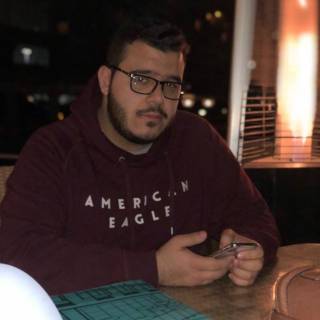Meet Abdullah - he progressed to Geology BSc from the UPC in 2017. Find out more about his experience of the UCL foundation year and his undergraduate degree below.

Why did you choose to study at UCL?
My sponsor (Aramco) gave me the choice of Australia, the US and the UK. I chose the UK for many different reasons – one of them was the weather! It’s very hot in Saudi Arabia and I’m a cold weather person.
In the UK, I had the choice between Durham or UCL. Both are academically demanding and challenging, but there were a few things that I preferred about London, including UCL’s international ranking, the variety of people and the nightlife!
What course do you study now and what is it like?
Geology BSc– it’s very interesting, and I have to read extensively. I use a microscope a lot – we have 8-10 practical hours each week. I look at rock specimens and identify the minerals that exist in the rock. I look at the chemistry and create chemical reactions.
I found my passion for Geology after I went on a field trip with school to Riyadh. We looked at some specimens that were 450-500 million years old; older than human beings! I didn’t realise that so many different types of rocks could exist. It was really fascinating.
How has an international foundation course like the UPC helped you in your undergraduate degree?
It helped me a lot in many different ways.
The UPC is arranged in a way to get the best out of you. It helps you cope with stress, because there are so many deadlines, it gets you used to it. I see other students who came immediately from high school stressing and worrying, but now I can cope from my experience.
My English is much better after the UPC; they give you a lot of English. The 3-hour English class is hard, but it really paid off. In particular, my grammar and speaking. They get you to do presentations and speaking to people next to you in class really helped.
What was the most enjoyable part of the UPC?
The first month meeting new people from all over and getting to know about their culture.
I also really enjoyed the teamwork. We worked together trying to solve a lot of problems, worked in group presentations and projects. I really miss that!
What was the most challenging part of the foundation course and how did you overcome it?
Maths was the most challenging! It’s a weird thing; I’m really good at maths, I got straight 100s at school. The questions here though are very complicated; my first quiz was 36 out of 100. This was because of the time, I only had one hour. I had to take some more tests and get used to the time limit. I got there in the end; it just needs practice.
What did you do when you were not studying for the UPC?
I was always studying for the UPC! I went out to the cinema and hung out with friends. I made a lot of good friends from all over the world. You have to open up, don’t just stay in the corner, you need to put yourself out there.
UPC students are very friendly, more friendly than at undergraduate. It felt more like a family in the UPC.
What advice would you give to a prospective UPC student?
Do not procrastinate! Maths was challenging, I used to get course work that was due next month, and I would leave it until the last minute. Instead, do one question a day, don’t do it all in one day. Manage your time. The most successful students on the UPC are the ones who can manage their time.
What is it like living and studying London?
I like living and studying in London. I feel welcome, such as when you go out to restaurants, everyone is friendly, the reception of student accommodation, teachers, meeting people on the street.
My teachers last year were the best, they work hard to get you to be the best, and do everything they can to help you.
London is the most culturally diverse city in the UK so you can get to know different cultures. I’ve learnt that Turkish culture is similar to Arab cultures, such as the way they speak, the way they live, their night life. This was a bit of surprise for me!
How is the UK education system different to your home country?
There is a lot of self-study here – hard but efficient in teaching. The teacher gives you an important idea and then you have to go look up the answers.
The first foundation I did in Saudi Arabia wasn’t as hard as they spoon feed you everything. The things you need are in the lecture notes, in the UPC they give you hard questions and you have to read different text books to get the information.
When you read more, you learn more. You are thinking outside the box and learn more about the topic.
 Close
Close

